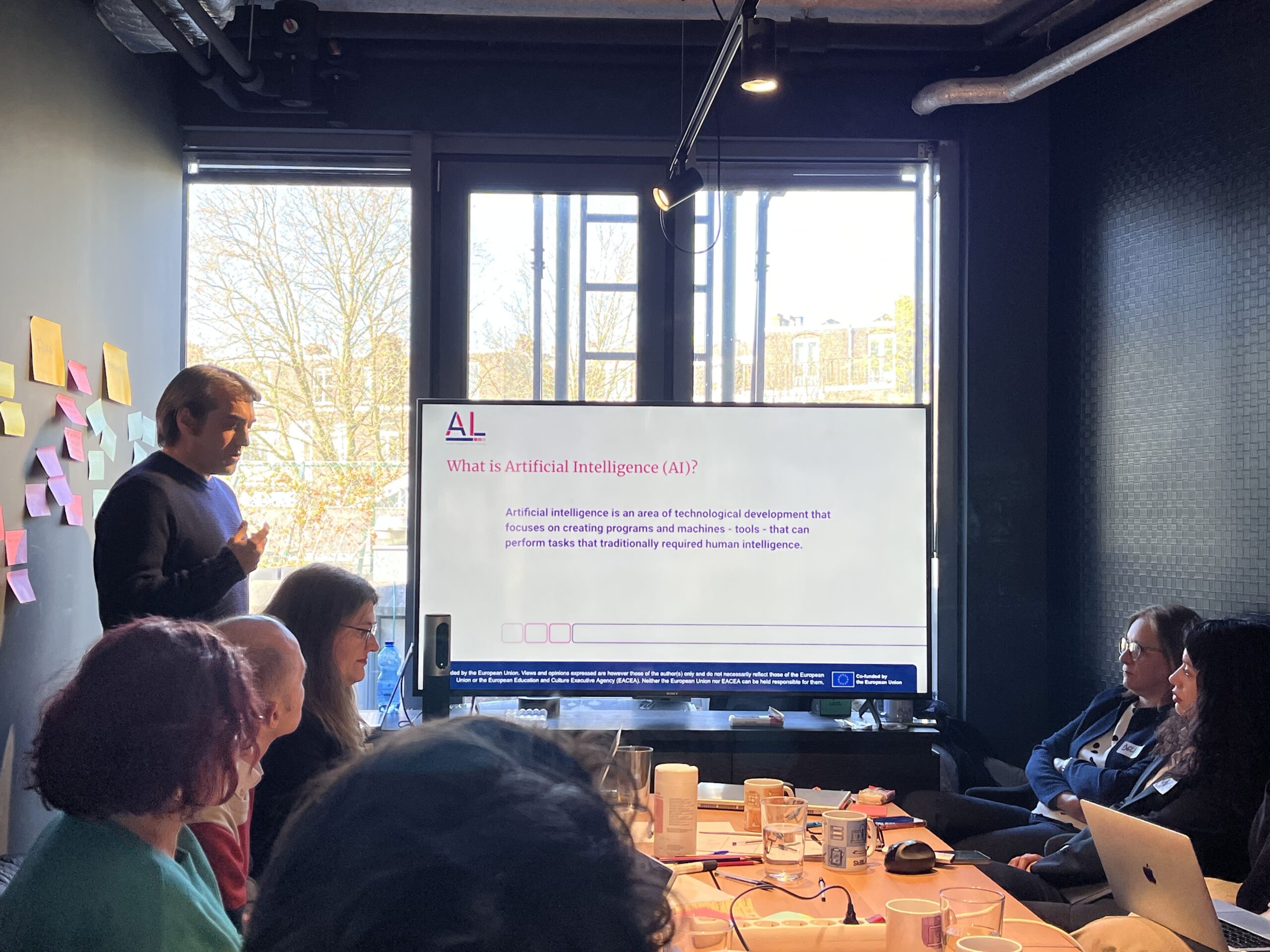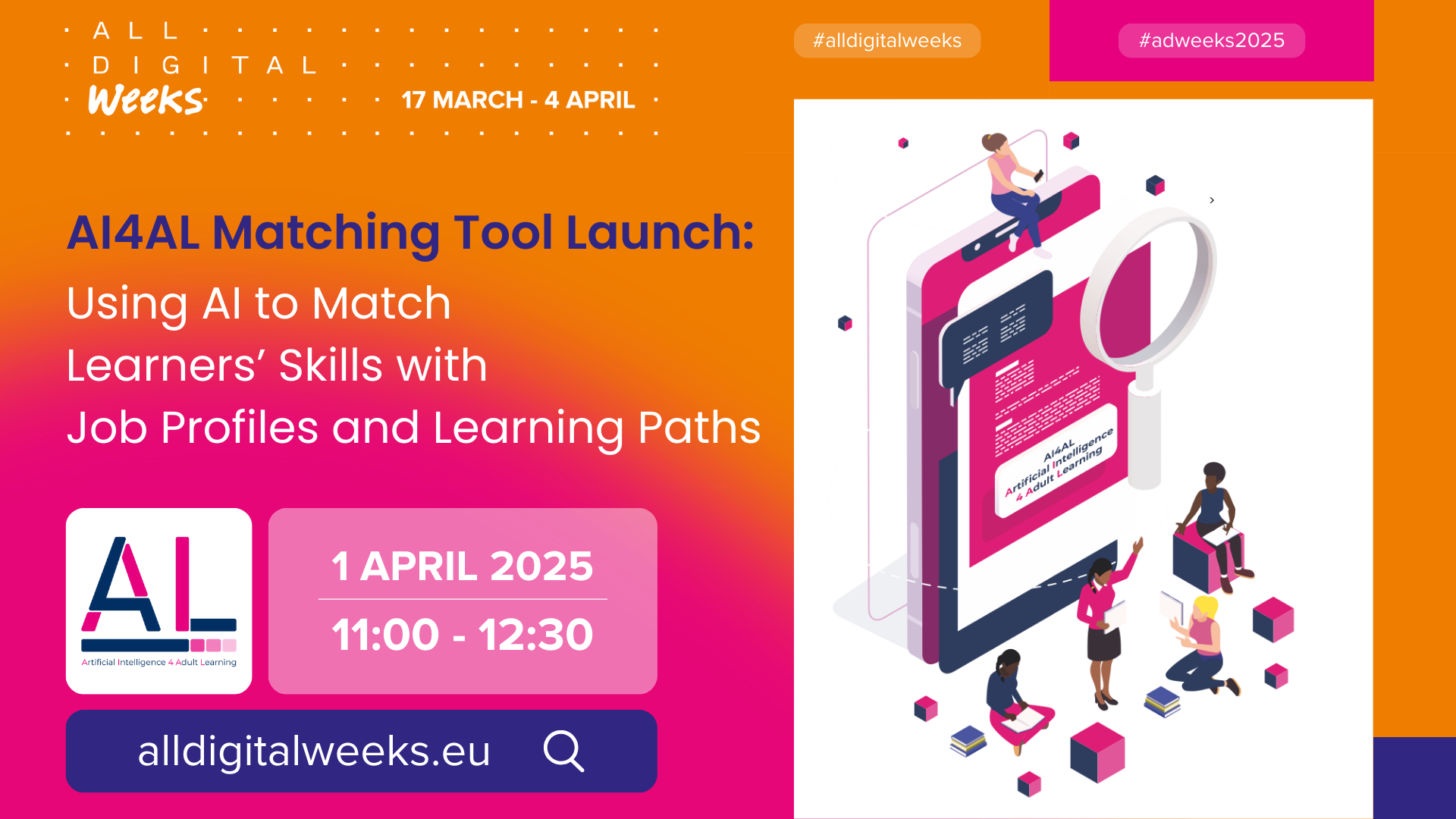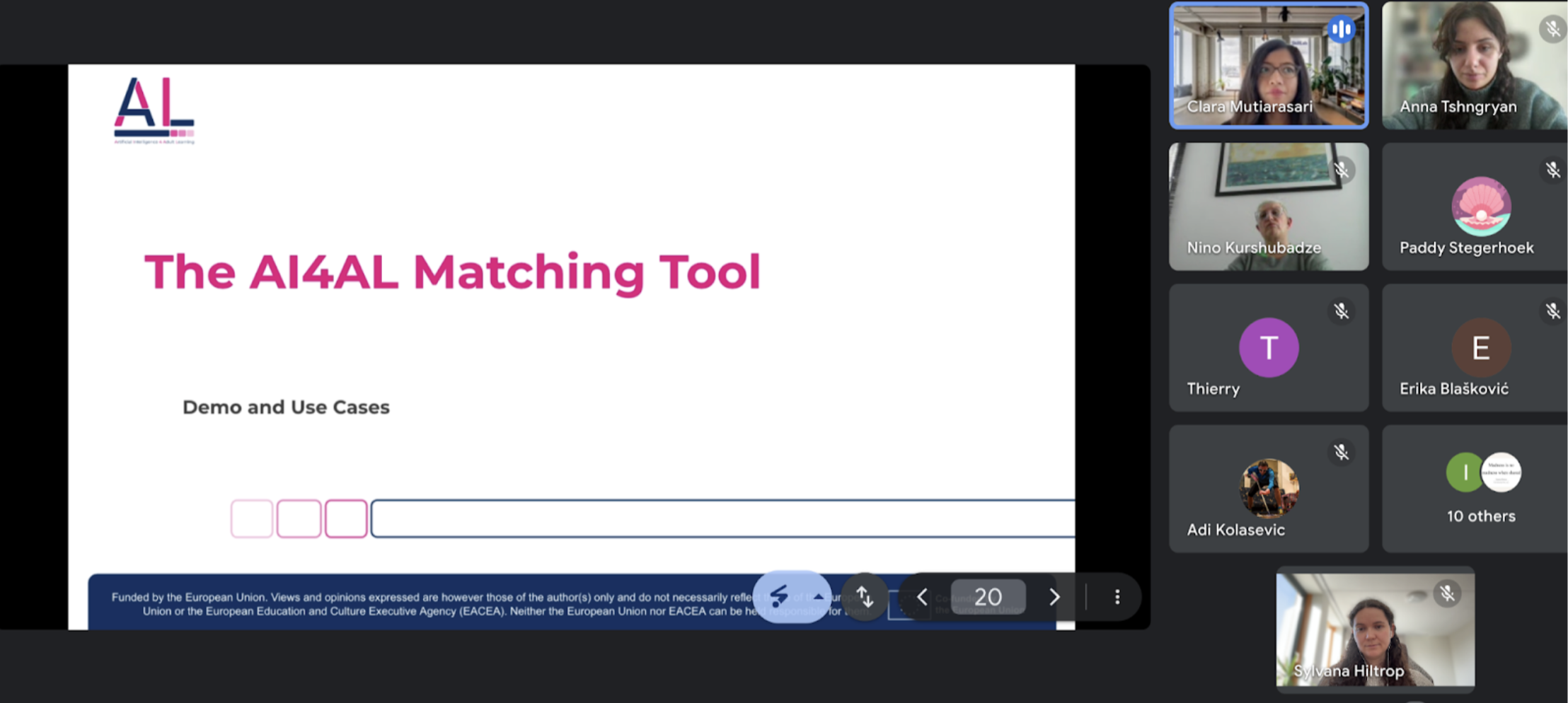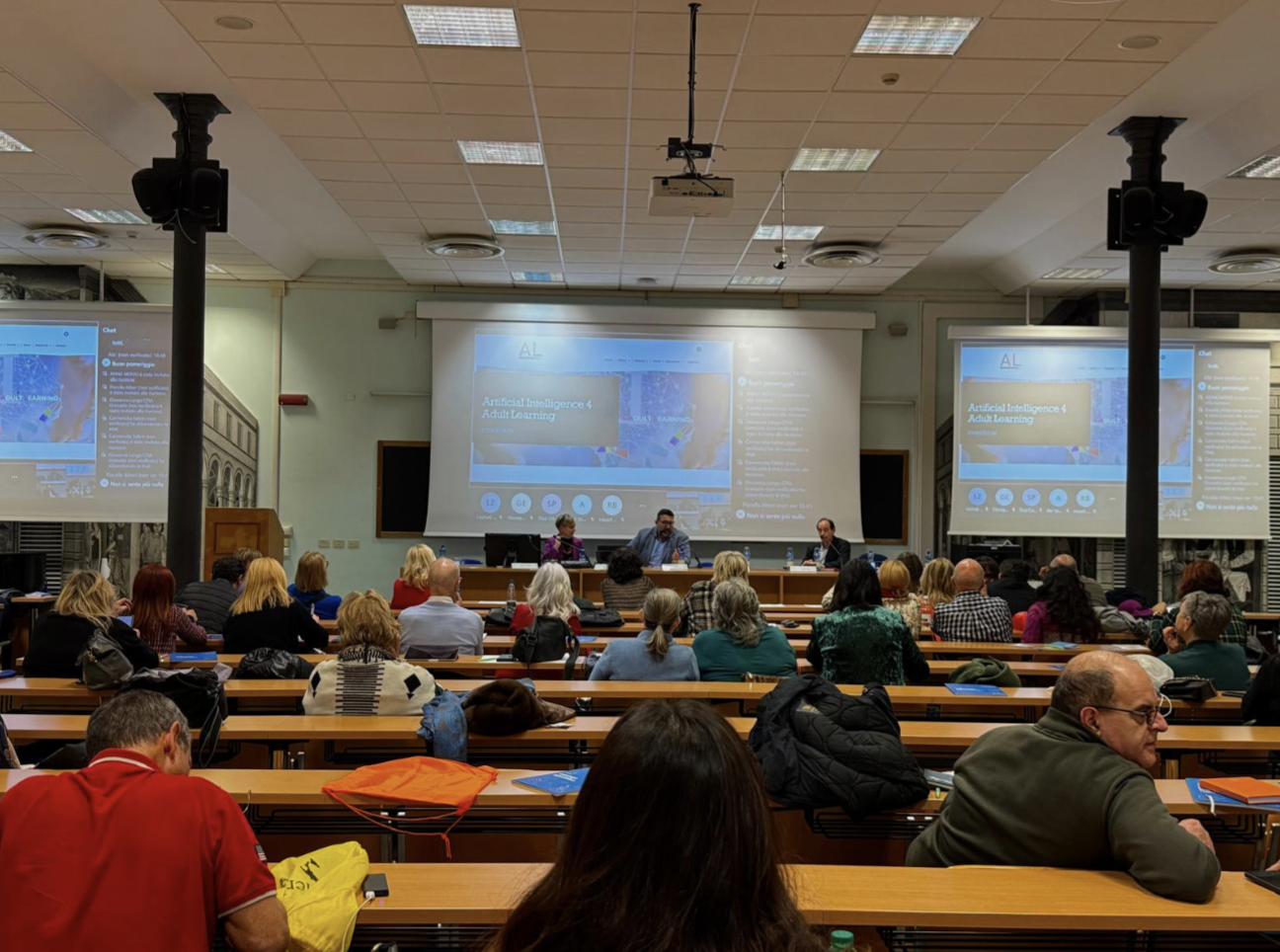As part of the AI4AL project’s Work Package 2, project partner SkillLab, with the support of European Association for the Education of Adults (EAEA), successfully delivered a three-day training of tutors in the Netherlands. From Wednesday 19 to Friday 21 April, 10 adult educators from Belgium, Germany, Italy, Romania and Spain gathered at SkillLab’s new office in the heart of Amsterdam to learn about AI and its use in adult education. The participants had the opportunity to try out the raw AI4AL matching tool. They were also involved in the development process by collecting insights and feedback. The training participants will be future tutors of 100 adult educators who will be involved in the development and testing of the tool.
The training started with a sharing session among the adult educators about their expectations and the opportunities they see for AI in adult education. A better understanding of AI, what tools are available and how to use them in adult education were some of the most common expectations from the training. Some participants saw the training as a great opportunity to share best practices in using AI for adult learning and to learn from different countries and organisations.
The first day of the training focused heavily on understanding the basics of AI and debunking some of the myths surrounding it. Led by SkillLab’s data science team, participants learned about the definition and types of AI. The session became challenging when it came to explaining the different layers behind deep learning. Nevertheless, the adult educators felt more confident about AI after trying out some popular AI tools, including ChatGPT and DALL-E.
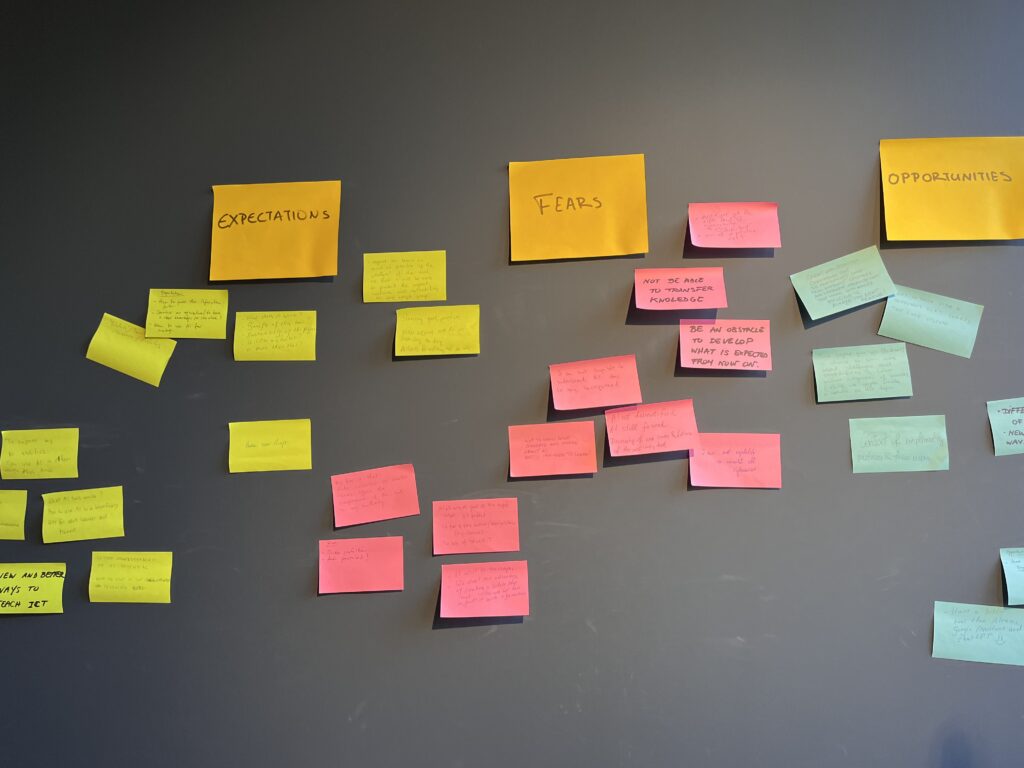
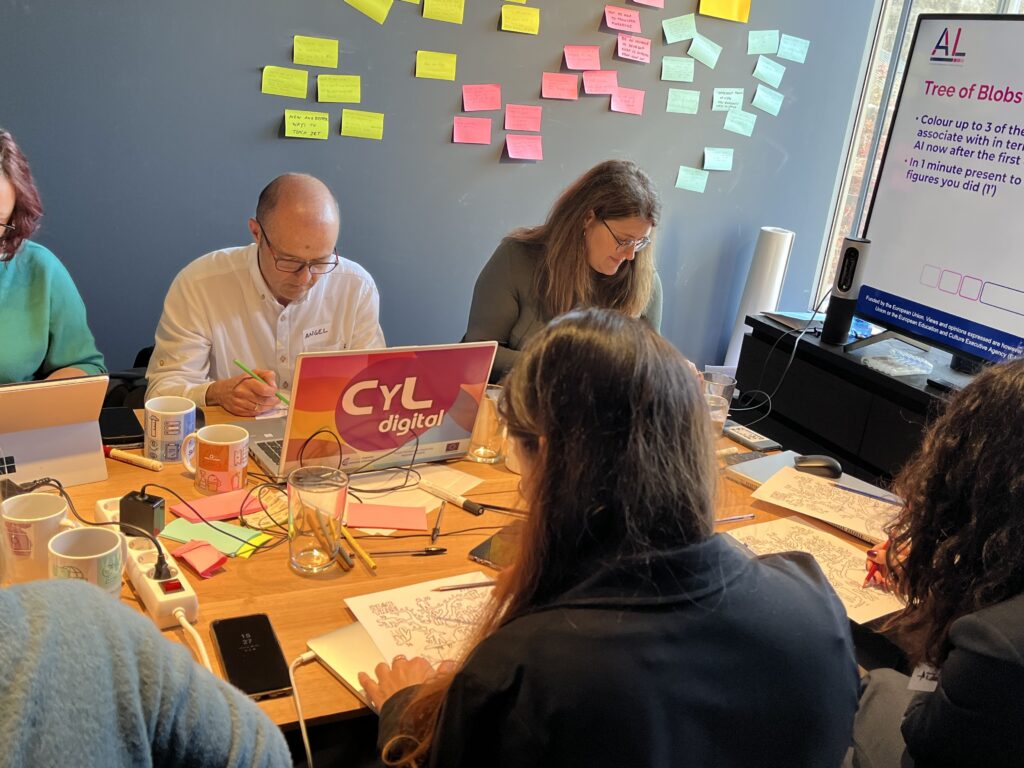
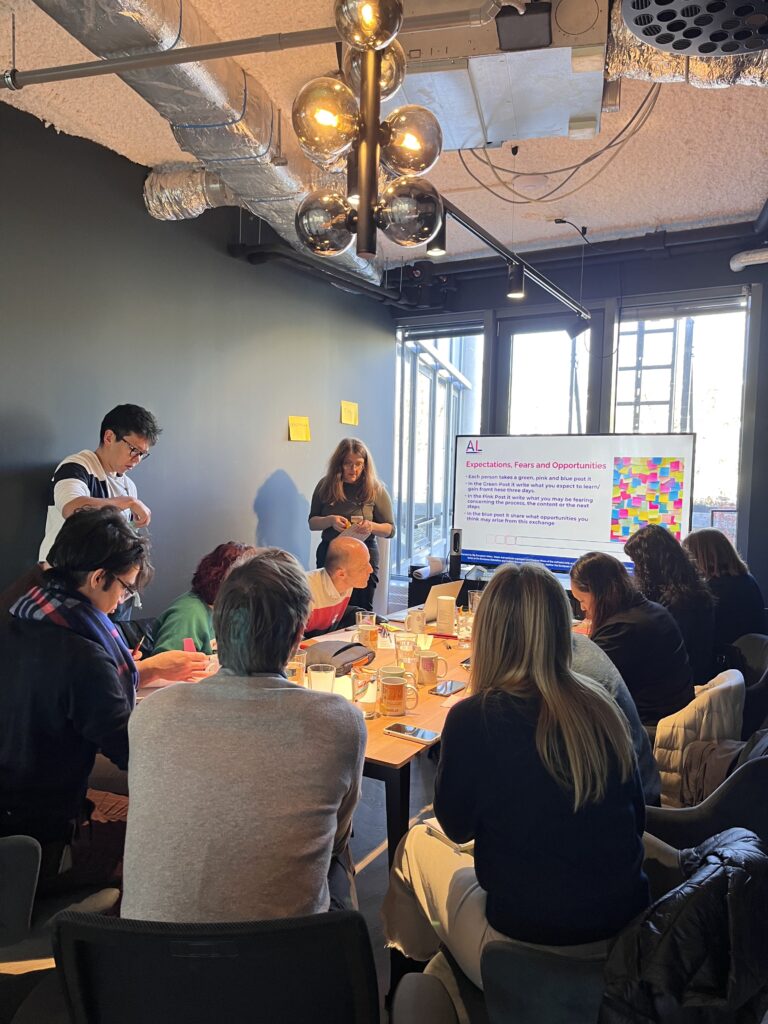
“I am in the middle (of the learning process) and still have a bit to go. Now I can answer my students’ questions (about AI) better than before,” said Eliana, a participant from Italy. Angel, an adult educator representing ALL DIGITAL, also feels more positive about AI: “I am hopeful. I am determined to use AI. … We are in a group looking for solutions to different kinds of problems. It is a very good opportunity“.
On the second day, participants got a glimpse into the raw AI4AL matching tool. They learned how to build their skills profile using the tool. The AI recommender in the tool helped the participants to reflect on their existing skills from different life experiences, including work, education, informal work, volunteering and hobbies. While creating their skills profile, adult educators also reflect on how the AI4AL tool can be used in their work with their target groups. Despite some potential challenges that emerged from the discussion, the participants provided some valuable insights and feedback for the development and improvement of the tool. Some participants, like Nadia from Italy, expressed their excitement about the final version of the tool. Meanwhile, Amira, representing a government agency in Germany, hoped that “the fear of AI could push people and the education system to change and be better“.
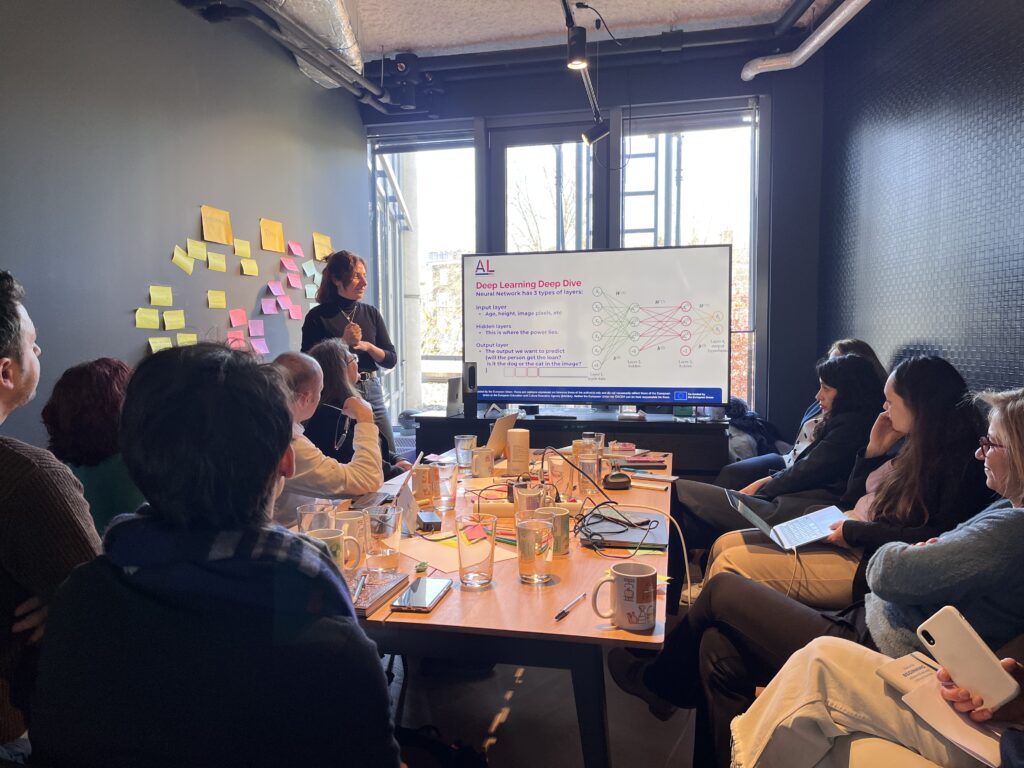
Angeliki Giannakopoulou from EAEA facilitated the sessions on the final day. The last day centered around the use of AI in adult education. All participants and facilitators sat together and brainstormed about how AI can be used in adult education. The results were recorded in a Padlet, which will be accessible to participants throughout the project to gather their insights for the creation of the scenario repository and the training toolkit for the matching tool.
After three days of intensive training, all participants felt more confident and positive about using AI tools in their work as adult educators. “It seems like a big challenge, but we will fight for it,” said Turker, before travelling back to Germany to prepare for the next phase of the project.
The training will be followed by the development of the matching tool and several feedback loops with adult educators before the final tool can be distributed to adult learners next year.
Read more about the AI4AL project’s objectives here.


